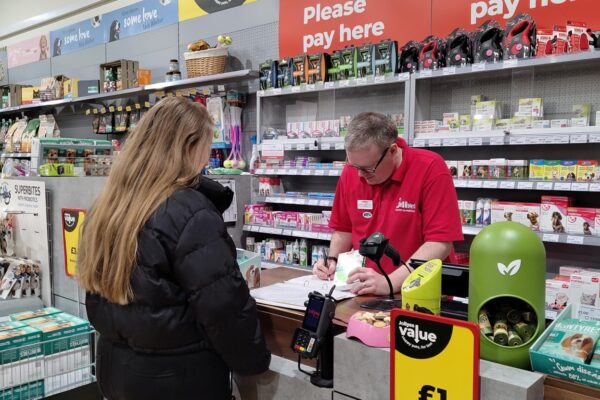Springwatch…some things are a struggle
I’m gutted…tonight is the last Springwatch. I’ve always had a passion for nature and every night this week I’ve checked in to see what new revelations the programme will uncover. I learn so much. I struggled a bit with the snakes eating the chicks but that’s life, isn’t it?
On Tuesday night’s Springwatch we saw some coverage of the contamination of our watercourses with imidacloprid and fipronil. The presenters were seen sampling some watercourses downstream and upstream of sewage outfalls to contrast the numbers of invertebrates that the food chain, including our UK birdlife, depends upon.
The president of the BVA, Anna Judson, was on the programme to say that the BVA recommends that vets adopt a risk-based approach to prescribing flea treatments, as opposed to using them for prevention. For some years now many flea-treatments have been supplied for routine prophylaxis as part of health plans. The BVA is using the mantra we use in the veterinary and SQP sectors when we talk about controlling resistance to antiparasitics…use as little as possible, as much as necessary.
BVA is very much occupied at the moment with the review by the Competition and Markets Authority. Two decades ago, as one of the recommendations of the similar reviews by Sir John Marsh and the Competition Commission, the VMD was tasked with classifying veterinary medicines in the lowest possible regulatory category. “Lowest possible” is really the point at which the consumer, animal welfare or the environment become threatened by reclassification.
For the Springwatch programme the VMD was asked for a response to the contamination of our waterways and came back with the answer that they have formed a cross-government committee looking at contamination of the environment with pharmaceuticals, including veterinary medicines. Given the constraints that civil servants operate under, sometimes changes can take time to feed through and it may be a while before there is either sufficient new evidence, or a new consensus that might alter the ultimate course of the de-regulation super-tanker that was set in sail two decades ago. Last year Vetpol joined RUMA CA&E where Jeremy represents us; he asked for contamination of the environment by small animal flea treatments to be put on the agenda. A debate about that will happen at RUMA CA&E over the next few weeks.
Our difficulty with this issue is that we all know that the science points to the contamination coming from flea treatments but we don’t know whether it is flea treatments classified POM-V, NFA-VPS or AVM-GSL. I don’t know many vets who supply POM-V medicines containing fipronil/imidacloprid anymore because most practices are supplying something else. That doesn’t mean that they shouldn’t take a risk-based-approach with those actives…it may be that the actives in the POM-V flea-treatments that have been most commonly prescribed prophylactically under health plans are in watercourses as well, but we just haven’t tested for them yet.
SQPs registered with Vetpol have always had environmental contamination with antiparasitics covered as part of their training. Not only have we always trained on it, but we also test for it in exams because there is an obligation to provide information on safety when supplying a veterinary medicine. Safety includes environmental safety. It matters.
The issues with use of antiparasitics in companion animals are a bit different to those in large animals. We don’t have a big problem with resistance to flea treatments and mostly the parasites that we are dealing with in ruminants and horses aren’t zoonotic. With companion animals more of the parasites that affect the animals or the microorganisms that they carry are zoonotic, and of course many of our companion animals share our homes, presenting a much greater risk to the consumer.
This week I did struggle a bit with watching adders and grass snakes eating chicks on Springwatch and at the same time I was educated by it, just as we need to educate owners about how to use flea treatments.
What do you think? If you have a view on this subject, please join our SQP Discussion Forum on Facebook where you may join in on the discussions.




